The college’s alumni body is 180,000 strong and includes seven Nobel Laureates and nine Pulitzer Prize winners.
Learn more about our alumni events.
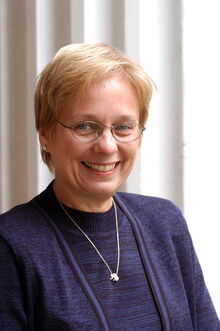
Susan Avery (MS, '74, physics; PhD, '78, atmospheric sciences) is a senior fellow at the Consortium for Ocean Leadership in Washington, D.C. She's also president emerita of the Woods Hole Oceanographic Institution (WHOI) in Massachusetts, where she led the marine science and engineering research organization from 2008-2015. She earned the American Meteorological Society's highest honor, the title of honorary member.
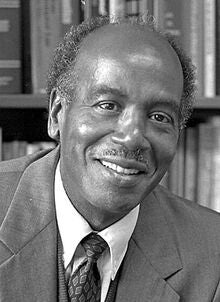
Lucius Barker (MA, '50; PhD, '54, political science) is one of the most prominent political scientists in the country, specializing in judicial politics, Constitutional law, and African-American politics. Barker has also been active in politics, serving as a participant and analyst in the campaigns of Presidents John F. Kennedy and President Barack Obama.
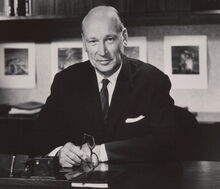
Arnold Beckman (BS '22; MS '23, chemistry) made discoveries at the root of a scientific revolution in instrumentation, from the pH meter to an oxygen analyzer. In 1935, he and his staff at National Technical Laboratories worked on instruments that improved military radar on the eve of World War II, and produced spectrophotometers critical to the production of synthetic rubber, explosives, and aviation fuel during the war.
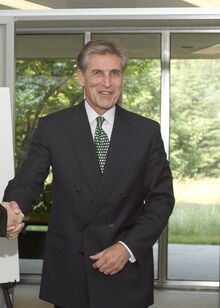
James M. “Jim” Benson (BA, '68, finance) served as CEO of John Hancock Life Insurance Company and on the United States Olympic Committee board of directors. He’s the founder and chairman of World T.E.A.M. Sports, an organization dedicated to providing opportunities through sport for people with disabilities.
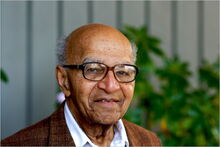
David Harold Blackwell (AB, '38; MS '39; PhD, '41, mathematics) led a distinguished career in mathematics and statistics research and education before his death in 2010 at age 91. In 1955, he joined the University of California-Berkeley, where he held joint faculty appointments in the Departments of Statistics and Mathematics. He was the first African-American elected to the National Academy of Sciences.
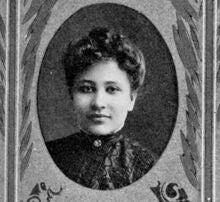
Maudelle Tanner Brown Bousfield (AB, '06, mathematics and astronomy) was a pioneer her whole life. Bousfield was the first African-American woman to graduate from the University of Illinois in 1906. She later became Chicago's first black elementary school principal and first black high school principal.
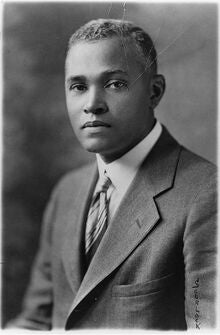
St. Elmo Brady (MS, 1914; PhD, 1916, chemistry) emerged from the College of LAS as the first African-American in the nation to be awarded a doctoral degree in chemistry. In 1916, NAACP's magazine, The Crisis, named him Man of the Month. Brady advanced chemistry education for African-Americans and inspired others to enter the field, serving as a faculty member at four historically black universities.
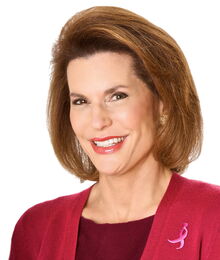
Nancy Brinker (BA, '68, sociology) received the Presidential Medal of Freedom for founding Susan G. Komen for the Cure, a worldwide grassroots organization fighting breast cancer. The organization has raised more than $1.3 billion to find a cure for the disease and provide support for its victims.
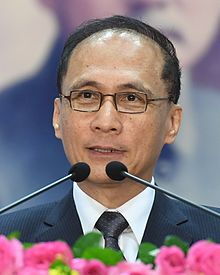
Lin Chuan (MS, '82; PhD, '84, economics) became the premier of Taiwan in May 2016. Lin began his professional career in academia before accumulating extensive experience in the public and private sectors.
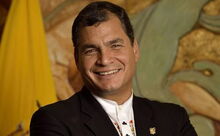
Rafael Correa (MS, '99; PhD, '01, economics) is an Ecuadorian politician and economist who served as president of the Republic of Ecuador. He has also served as president pro tempore of the Union of South American Nations.
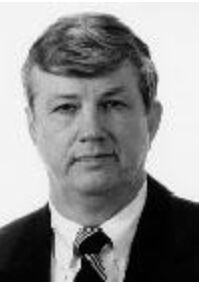
Ed Cupp (PhD, '69, entomology) developed an environmentally safe, successful method for controlling the spread of river blindness, a parasitic disease that affects millions of people in Africa and Central America.
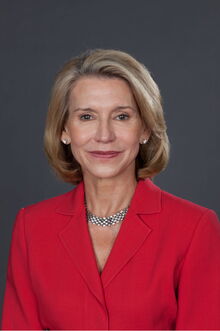
Roxanne Decyk (BA, '73, English literature) is a top executive at Shell Oil Company who is shattering the metaphorical glass ceiling for women in corporate America.
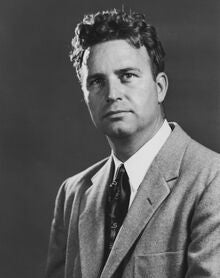
Robert Dietz (BS '37; MS '39; PhD '41, geology) coined the term "sea-floor spreading" in 1961 to describe his hypothesis that mid-ocean ridges marked where the Earth's crust was constantly being created, which led to the theory of plate tectonics. In 1964, he hypothesized that a meteorite caused a crater some 1.8 billion years ago at a spot now near Sudbury, Ontario. This work helped shape our understanding of the evolution of life on Earth.
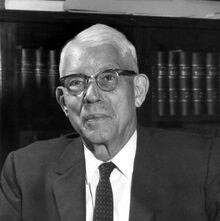
Edward Doisy (BA, 1914; MS, 1916, chemistry) shared the Nobel Prize in medicine and physiology in 1943. Doisy discovered the chemical nature of vitamin K. His work involved synthesis, isolation, and characterization of the K vitamins.
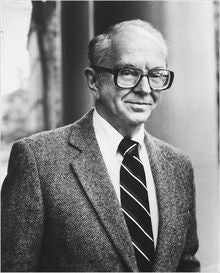
David Herbert Donald (MA, '42; PhD, '46, history) twice won the Pulitzer Prize in Biography: in 1961 for "Charles Sumner and the Coming of the Civil War" and in 1988 for "Look Homeward: A Life of Thomas Wolfe."" Donald was best known for his biographical works on Abraham Lincoln.
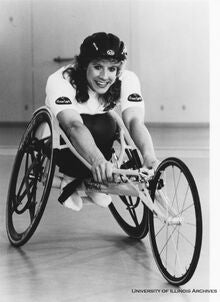
Jean Driscoll (BA, '91, speech communication) won the Boston Marathon eight times and a gold medal at the 2000 Paralympic Games.
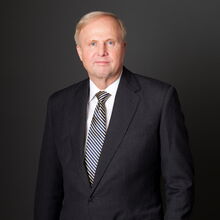
Robert Dudley (BS, '78, chemical engineering) was named CEO of BP in 2010. He spent his whole career in the oil and gas industry. He held senior management roles in Amoco and BP and was chief executive officer of TNK-BP from 2003 to 2008.
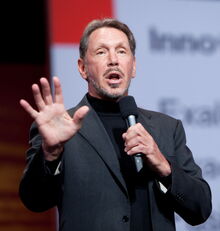
Larry Ellison co-founded Software Development Laboratories, which eventually became Oracle Systems Corporation. Its flagship product: the Oracle database. Ellison served as the company's CEO until 2014 and continues to serve as Oracle's chairman and CTO.
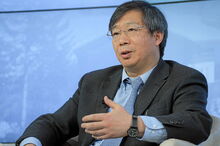
Yi Gang (PhD, '86, economics) was named chief of China's central bank in 2018. He took over as the bank was tasked with ongoing reform of the financial landscape, including encouraging foreign investment into the financial markets, and monetary policy reform.
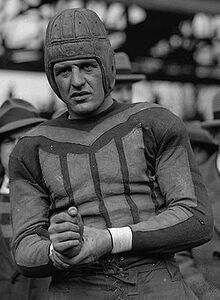
Nicknamed the Galloping Ghost, Harold "Red" Grange was a three-time All-American halfback from the University of Illinois who helped launch professional football as a player for the Chicago Bears. In 2008, ESPN named him the best college football player of all time, and he's recognized with a statue outside Illinois' Memorial Stadium.
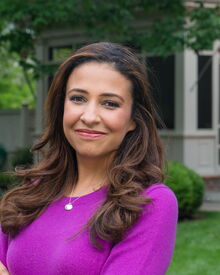
Erika Harold (BA, '01, political science), in a search for scholarship money to attend law school, worked to eventually become crowned Miss Illinois 2002 and Miss America 2003. Her platforms included preventing bullying and youth violence. She graduated from Harvard Law School.
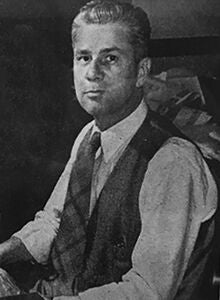
Roy Harris Sr. (BA, '25, general curriculum) shared the 1950 Pulitzer Prize in Public Service with fellow University of Illinois alumnus George Thiem. Their work exposed the presence of 37 Illinois newspapermen on an Illinois state payroll. Harris was a reporter for the St. Louis Post-Dispatch for 42 years, retiring in 1967.
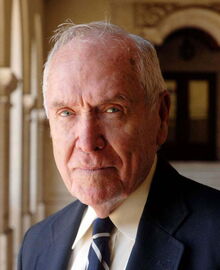
Rolando Hinojosa-Smith (PhD, '69, Spanish) earned Latin America's highest award for fiction, the Premio Casa de las Americas, and is a recipient of the National Award for Chicano Literature. He is one of the few U.S. citizens to be named a member of the Royal Spanish Academy for Spanish Language.
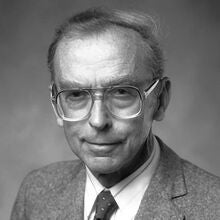
Robert Holley (BA, '42, chemistry) won the Nobel Prize in medicine and physiology in 1968 for his work determining the precise structure of nucleic acids. Holley was an American Chemical Society postdoctoral fellow at the State College of Washington until 1948 when he became a professor at Cornell University. He also taught molecular biology at the University of California, San Diego from 1971 to 1993.
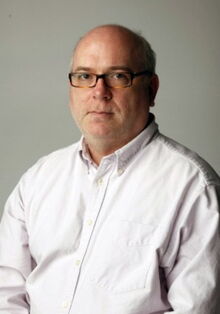
Glenn Howatt (MS, '82, geography; MS, '86, journalism) shared in the 2013 Pulitzer Prize for Local Reporting for a series of reports on a spike in infant deaths in Minneapolis daycares that led to legislative action strengthening regulations. Howatt worked as a longtime Minnesota Star Tribune reporter and editor.
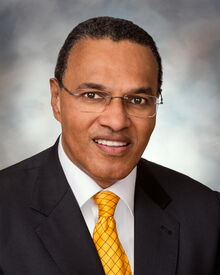
Freeman Hrabowski (MA, '71 mathematics; PhD, '75, education) was named president of the University of Maryland-Baltimore County in 1992. Hrabowski created the Meyerhoff Scholars program, now a national model for recruiting and training excellent minority students. He's been featured on 60 Minutes, and in 2012, Time listed him as one of the 100 Most Influential People in the World.
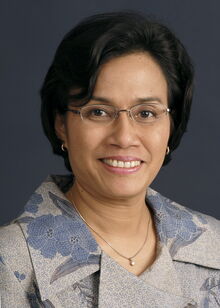
Sri Mulyani Indrawati (MS, '90; PhD, '92, economics) is Indonesia's finance minister who was named as one of Forbes’ 100 Most Powerful Women in 2019. She has also worked as managing director and dhief operating officer of the World Bank, head of the Indonesian National Development Planning Agency, executive director at the International Monetary Fund, and as a faculty member at the University of Indonesia.
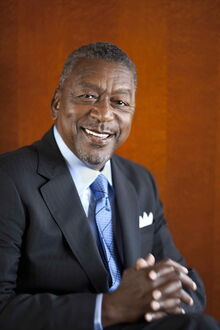
Robert Johnson (BA, '68, teaching of social studies) co-founded Black Entertainment Television with his former wife and fellow Illinois alumna, Sheila Crump Johnson. The Johnsons launched the network in 1980 and sold it to Viacom in 2001.
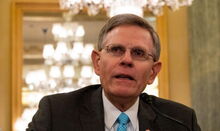
Kelvin Droegemeier (MS, ’82; PhD, ’85; atmospheric science) was confirmed in January 2019 as the director of the White House Office of Science and Technology Policy. He previously served as vice president for research at the University of Oklahoma in Norman, and had been appointed by Oklahoma Gov. Mary Fallin as the state’s secretary of science and technology.
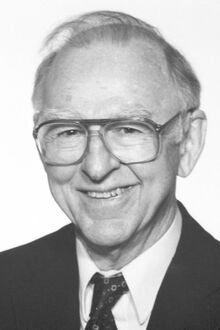
Edwin Krebs (BA, '40, chemistry) shared the 1992 Nobel Prize in medicine and physiology with Edmond Fischer for their discoveries in the 1950s concerning reversible protein phosphorylation. Krebs held faculty positions at the University of Washington and University of California-Davis.
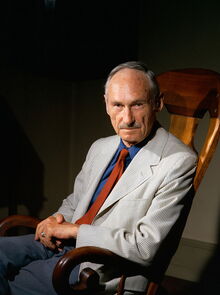
Richmond Lattimore (MA, '27; PhD, '35, classics) is most known for his translations of ancient Greek poetry, including his 1951 translation of the Iliad, which is considered one of the finest translations of Homer. That and his 1967 translation of the Odyssey remain standard texts in university classrooms.
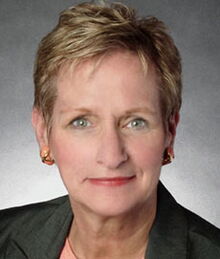
Lynn Morley Martin (BA, '60, teaching of English) served in the Illinois House of Representatives, Illinois Senate, and the U.S. House of Representatives. In the U.S. House, she was vice chair of the House Republican Conference. She served as U.S. Secretary of Labor from 1991 to 1993, and also worked as a professor at Northwestern University's Kellogg School of Management.
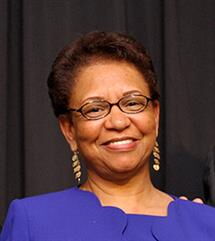
Edna Medford (MA, '76, history) is considered one of the pre-eminent scholars on the Emancipation Proclamation, and a giant in the field of African-American history. Since graduating from the College of LAS, she has written extensively about Abraham Lincoln and African Americans around the time of the Civil War. In 2009, she received a special bicentennial induction into the Order of Lincoln, the highest honor awarded by the state of Illinois, for her studies of Abraham Lincoln.
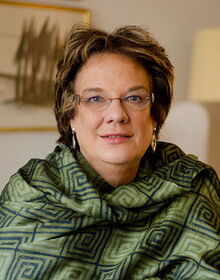
Molly Melching (AB, '79, general curriculum) spent more than 25 years in Senegalese villages promoting literacy and education. In 1991, Melching created TOSTAN, a nonprofit organization that teaches an 18-monthlong basic education program in the native languages that emphasizes problem solving and is adapted to the villagers' way of life.
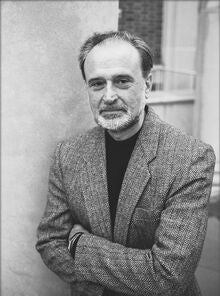
John Micetich (BS, '69, psychology) is a successful owner of a financial investment firm. He returns to campus each January to teach an eight-week course in financial planning-pro bono-as one of his ways of giving back to his alma mater.
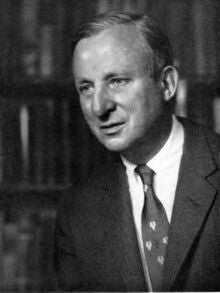
(Joseph) Allan Nevins (BA, 1912; MA, 1913, English) received the Pulitzer Prize in Biography twice: in 1933 for Grover Cleveland and in 1937 for Hamilton Fish. Nevins worked as a journalists for The Nation and the New York Evening Post and was also an experienced historian, publishing 50 books and more than 1,000 articles.
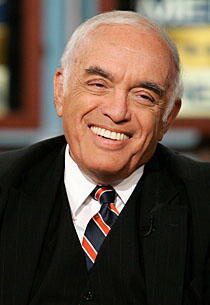
Robert Novak (AB '52, English) was the nation's longest-running syndicated political columnist before his death in 2009 at age 78. He also shared his insights on prominent television programs such as "The McLaughlin Group," "Meet The Press," "The Capital Gang," and "Nightline."
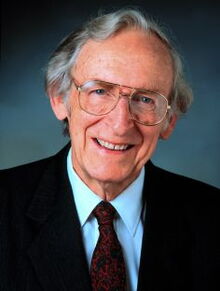
Eugene Odum (PhD, '39, zoology), known as the "father of modern ecology," published Fundamentals of Ecology in 1953, which was then the only book in the field and influenced a generation of ecologists. Odum also served as first director of the Institute of Ecology, and his many honors included the Crafoord Prize (the Nobel equivalent for ecologists) and being inducted into the Ecology Hall of Fame.
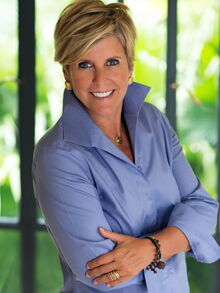
Suze Orman (BA, '77, social welfare), an expert on personal finance, is a two-time Emmy Award-winning television host, New York Times bestselling author, magazine and online columnist, writer/producer, and motivational speaker.
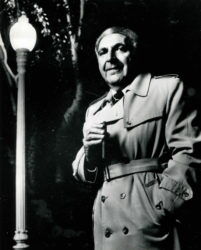
Arthur M. Petacque shared the 1974 Pulitzer Prize for Local General Spot News Reporting with fellow University of Illinois alumnus Hugh Hough. Their work in uncovering new evidence led to a reopening the 1966 murder case of Valerie Percy. Petacque attended the University of Illinois in the 1940s.
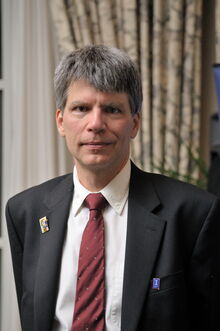
Richard Powers (AB, '78; MA, '80, English) is an American novelist whose works explore the effects of modern science and technology. He won the 2006 National Book Award, the MacArthur “genius” award, the James Fenimore Cooper Prize for Best Historical Fiction, and was elected to the American Academy of Arts and Letters in 2010.
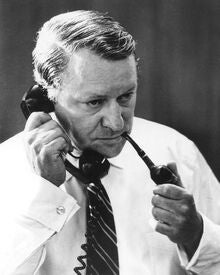
James B. Reston (BS, '32, general curriculum) received the Pulitzer Prize for National Reporting in 1945 and 1957 as a reporter for the New York Times. Reston's time as a Times reporter was impactful, interviewing high-profile personnel such as John F. Kennedy and reporting on leading events of the time.
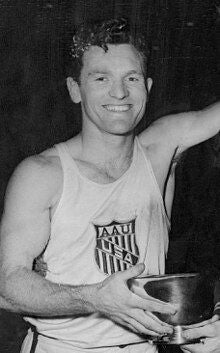
Bob Richards (AB, '47, general curriculum) was a versatile athlete who made three U.S. Olympic Teams in two events. He competed in the 1948, 1952, and 1956 Summer Olympics as a pole vaulter, and as a decathlete in 1956. He is the only male two-time Olympic gold medal winner in the pole vault.
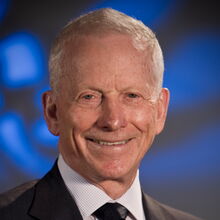
William Rutter (PhD, '52, biochemistry) founded a new Department of Biochemistry and Biophysics at University of California-San Francisco in 1969, and his career has been marked by important breakthroughs ever since. In 1981 he co-founded Chiron, one of the first biotechnology companies, and his research on Hepatitis B resulted in the first recombinant vaccine, and his lab also cloned the Hepatitis C virus. In 1984, Rutter helped sequence the HIV genome.
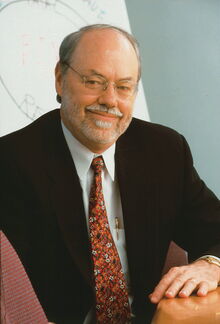
Phillip A. Sharp (PhD, '69, chemistry) shared the 1993 Nobel Prize in Medicine or Physiology for research that was important in understanding RNA splicing and the biology of tumor causing viruses.
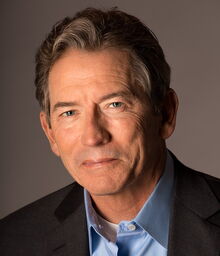
Thomas Siebel (BA, '75, history; MBA, '83; MS, '85, computer science) is the founder, chairman, and CEO of C3 IoT, an Internet of Things platform and applications company. Siebel was the founder, chairman, and chief executive officer of Siebel Systems, which was acquired by Oracle in January 2006. He also founded the Siebel Energy Institute.
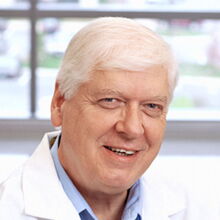
Hamilton Smith shared the 1978 Nobel Prize in medicine and physiology for "the discovery of restriction enzymes and their application to problems of molecular genetics." Smith graduated from University High School in 1948 and attended Illinois from 1948 to 1950.
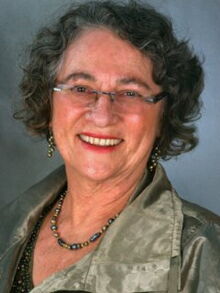
Carol Stack (MA, '68; PhD, '72, anthropology) became one of the preeminent names in cultural research through her examination of African-American communities. Her book, "All Our Kin: Strategies for Survival in a Black Community," became an instant classic when it was published in 1974 for its eloquent portrayal of social networks under the strain of poverty.
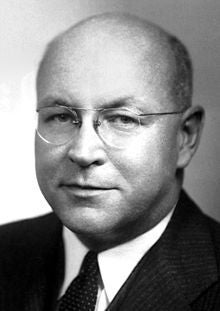
Wendell Stanley (MS, '27; PhD, '29, chemistry) shared the 1946 Nobel Prize in chemistry for contributions to the preparation of enzymes and virus proteins in pure form. Stanley briefly held a research position at Illinois from 1929 to 1930 after receiving his doctorate. He received numerous academic awards over his lifetime such as the American Association for the Advancement of Science Prize, the Rosenburger Medal (University of Chicago), and the Alder Prize (Harvard).
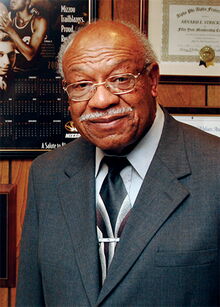
Arvarh Strickland (PhD, '62, history) became the first tenured African-American faculty member at the University of Missouri when he joined its history department in 1969. Strickland wrote "History of the Chicago Urban League," which is about the history of the Chicago League from the start of the early 20th century until the 1960s Civil Rights Movement. The book is seen as "the first history of a major African-American organization."
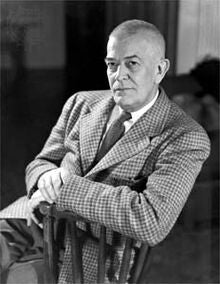
Carl Van Doren (BA, 1907, English) won the 1939 Pulitzer Prize in Biography for his book on Benjamin Franklin. Van Doren taught at Columbia University from 1911 until 1930. He is regarded as "one of a group of academicians who helped to establish American literature and history as an integral part of university programs."
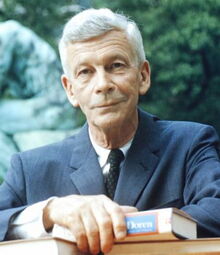
Mark Van Doren (BA, 1914, sciences and letters) received the 1940 Pulitzer Prize in Poetry for his work "Collected Poems, 1922-1938." Van Doren, like his brother Carl Van Doren, took a faculty position at Columbia University in 1920. In addition to his poetic works, he was also known for his teaching abilities and counted renowned poets such as John Berryman, Allen Ginsberg, Jack Kerouac, and Louis Simpson as his students.
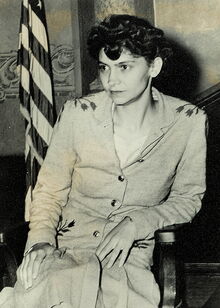
Vashti Cromwell McCollum (AB, ’44 general curriculum; MA, ’57, social science) fought for and helped defend the separation of church and state in the 1948 Supreme Court case McCollum v. Board of Education.
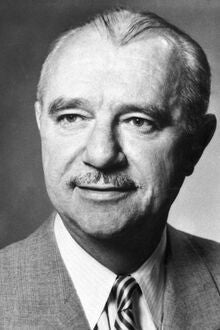
Vincent Du Vigneaud (BS, '23; MS, '24, chemistry) won the Nobel Prize in chemistry in 1955 for his work on "biochemically important sulfur compounds, especially for achieving the first synthesis of a polypeptide hormone." Du Vigneaud served on the university faculty from 1929 to 1932. He received honorary science doctorates from New York and Yale Universities in 1955.
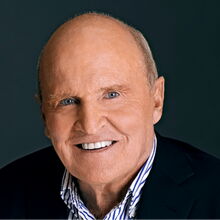
Jack Welch (MS, '59; PhD, '61, chemical engineering) served as chairman and CEO of General Electric between 1981 and 2001. During his tenure at GE, the company's value rose 4,000 percent. At GE, Welch became known for his teaching and growing leaders, and for streamlining the company by focusing on its most successful sectors.